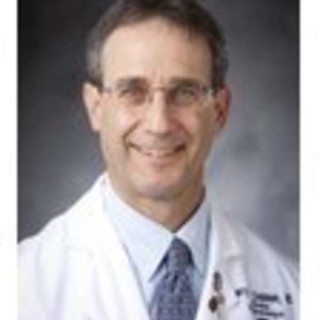2023 was the 75th annual meeting of the American Academy of Neurology, the world’s largest professional organization of neurologists, now with over 40,000 members including nearly 25% from outside the United States. The meeting, held in Boston April 21-27, had the largest attendance since the COVID-19 pandemic and offered experiences for trainees at every level, academics and non-academics, physician and non-physician care providers, researchers, neurology-focused administrators, and industry representatives. In addition to extensive opportunities for networking in a variety of social activities, the meeting included hundreds of sessions covering all aspects of neurology though poster and platform presentations of scientific and clinical advances, plenary didactics, courses, and more informal discussions provided in academic, educational, practice, and research hubs, among others. Many sessions were also provided in streaming format for those who could not attend in person.
A few of the many engaging sessions I attended included one focused on controversies in neurology, presented in a debate-type format. Some of the topics included whether the benefits of. gene therapy for genetic neurological diseases outweighed safety concerns, addressing the very high costs of novel neurologic therapeutics from a societal standpoint – particularly prompted by the advent of beta-amyloid clearing monoclonal antibodies, the approach to patients with possible normal pressure hydrocephalus, including whether the condition even exists.
Another session focused on current hot topics in neurology. These included the use of artificial intelligence using epilepsy as an example, to aid seizure detection, the development of personalized treatment plans for patients with genetic forms of epilepsy, drug management, and predicting surgical outcomes. This was followed by a review of functional neurologic disorders that highlighted the hypothesis that some may have a genetic vulnerability for the condition. The session next turned to a review of genome editing approaches using CRISPR technology to address the unmet need related to treatment of rare neuro-genetic diseases.
The clinical trials plenary session featured reviews of several recent human trials. Duchenne muscular dystrophy is a neuromuscular disease characterized by progressive weakness with 10-15% of those affected having a nonsense mutation in the DMD gene preventing the formation of full-length dystrophin. The effects of treatment with ataluren, which promotes readthrough of the stop codon allowing production of full-length dystrophin on ambulation was reported and found to result in an improvement in several motor endpoints compared to placebo. The Healy ALS trial platform is aimed at more efficiently testing drugs that may have benefit in the treatment of this progressive neuromuscular disease. A series of potential therapeutic drugs can be screened with a common protocol and common placebo control group with those having little chance of benefit abandoned and those with a greater likelihood of slowing the disease moving on to further testing. Gepants are oral CGRP receptor antagonists used for acute and preventive treatments for migraine headaches. The gepant zevagepant nasal spray was tested in a double-blind trial for the acute treatment of migraine in adults and was found superior to placebo for the co-primary endpoints of freedom from pain and freedom from the most bothersome symptoms. The phase 2 VISIONARY-MS study evaluated a gold nanocatalyst aimed at improving energy production and utilization as a means of promoting remyelination and neuroprotection in patients with stable relapsing MS and chronic optic atrophy who were receiving disease modifying therapy. The study ended earlier than planned due to the pandemic, but nonetheless led to improvements in visual measures and other paraclinical biomarkers. The ATTENTION trial evaluated the efficacy of thrombectomy in patients with acute ischemic stroke due to basilar artery occlusion. Conducted in China, the trial found better outcomes based on achieving a modified Rankin score (mRS) of 0-3 at 90-days compared to best medical therapy alone. The SELECT2 trial assessed the effect of thrombectomy plus best medical therapy compared to best medical therapy alone in patients within 24-hours of symptom onset who had a large core cerebral infarction based on the mRS distribution after 90-days. Thrombectomy led to a 50% improvement in the primary endpoint with a number needed to treat of 4.94 without a significant increase in symptomatic intracranial bleeding. Pridopidine, a drug thought to have neuroprotective effects in patients with Huntington Disease showed no benefit in the primary intention to treat analysis of the PROOF-HD trial, but possible improved outcomes in prespecified analyses among those not taking neuroleptics or chorea medications.
At the meeting, I spoke at a course on controversies in stroke about issues related to lipids and lipid management. Other topics in the course were related to intracerebral hemorrhage and the use of antithrombotic medications for stroke prevention. I also presented tips for department chairs for promoting diversity, equity, and inclusion in their departments.
In addition to the educational sessions, several social activities were held in conjunction with the meeting, the largest of which was the 75th Anniversary Gala, held at the Boston Museum of Science. It was wonderful to return to an in-person meeting and catch up with colleagues.
I am already looking forward to next year’s meeting to be held in Denver, Colorado.
Dr. Goldstein is on the Board of Directors of the American Academy of Neurology
Image by S-S-S / Getty







